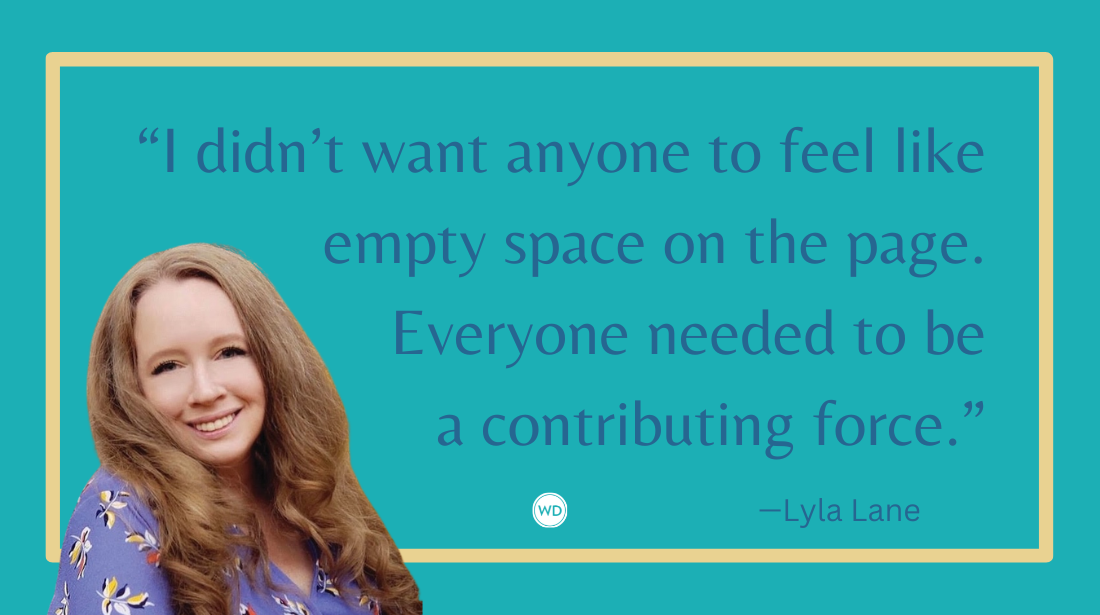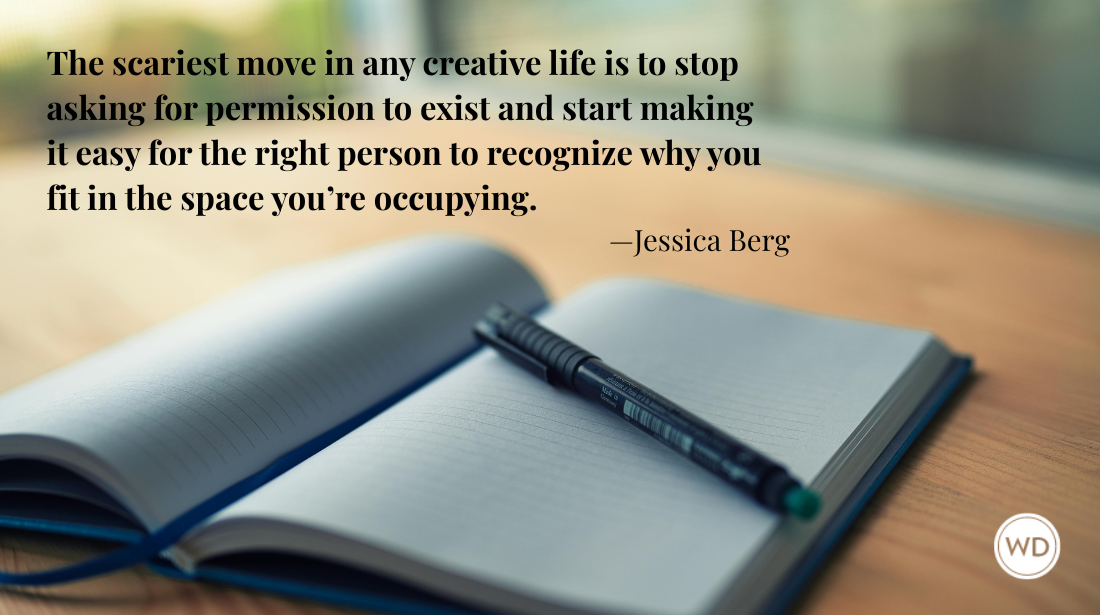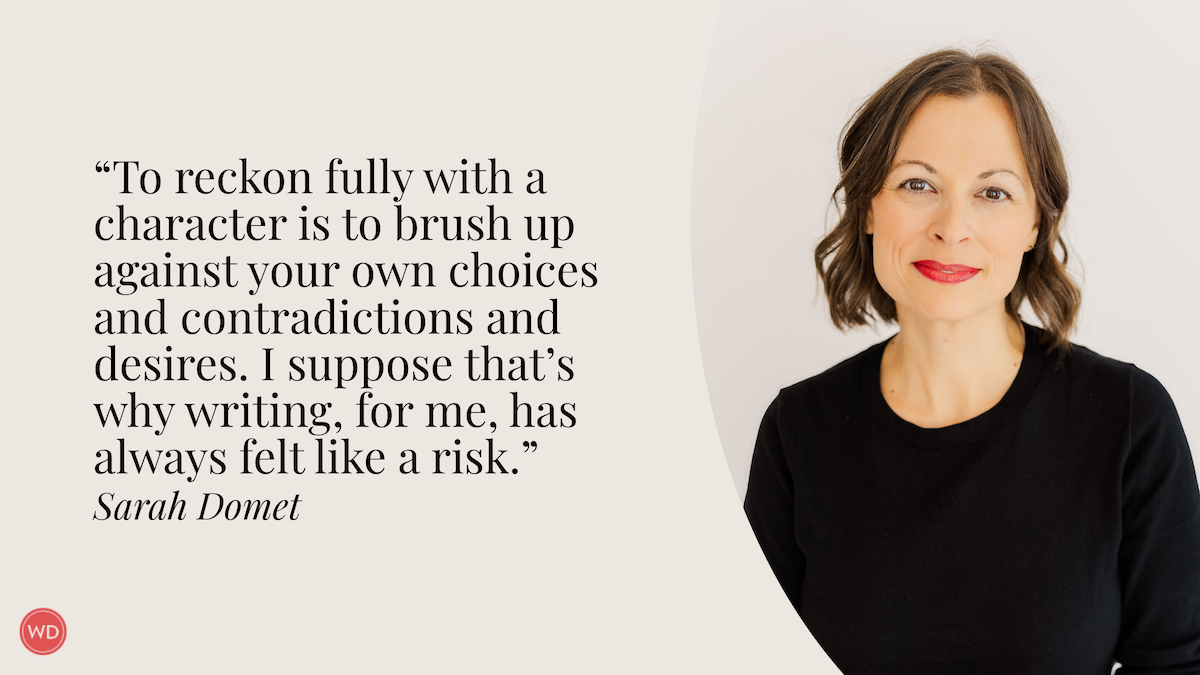James J. Butcher: On Rethinking Urban Fantasy
Author James J. Butcher discusses the trope he wanted to do without in his debut novel, Dead Man’s Hand.
James J. Butcher spends most of his time in places that don’t exist, some of which he even made himself. What little time he has left is usually spent writing or exercising. He is the son of #1 New York Times bestselling author Jim Butcher, who introduced him to books, movies, and games. He lives in Denver and is working on his next novel. Find him on Instagram.
In this post, James discusses the trope he wanted to do without in his debut novel, Dead Man’s Hand, his advice for other writers, and more!
Name: James J. Butcher
Literary agent: Jennifer Jackson
Book title: Dead Man’s Hand
Publisher: Penguin Random House
Release date: October 11, 2022
Genre/category: Urban Fantasy
Elevator pitch for the book: Men in Black meets Supernatural.
IndieBound | Bookshop | Amazon
[WD uses affiliate links.]
What prompted you to write this book?
I wanted my first published book to be in the urban fantasy genre, and this is the world/story I had been toying around with for a long time.
How long did it take to go from idea to publication? And did the idea change during the process?
The idea came in little pieces over years. I didn’t start seriously writing until I was about 20 years old, and I didn’t write this to-be-published novel until I was about 28. I wasn’t working on this story the whole time, but the world, setting, and characters all came together piece by piece as I wrote other things.
There were several iterations of the Grimsby story before this one, including a fully written novel that will never see the light of day and one short-lived version set in the 1930s. But the eventual book that would be published came together pretty smoothly, with only minor changes between the rough draft and final versions.
Were there any surprises or learning moments in the publishing process for this title?
Cover art is hard. Reconciling what is faithful to the story and what is functional for a cover means that something must give way. It’s also the first creative aspect of the project that I wasn’t primarily responsible for, and so was largely out of my hands.
That concept was a new experience for me, as I had spent most of the last decade telling my stories to myself, having total control, and relying solely on my own feedback. However, I decided to default to the more experienced hands and minds, and found the end result was quite lovely.
Were there any surprises in the writing process for this book?
One of the tropes I wanted to do away with that is common in the urban fantasy genre is the idea of the fantasy world being liminal to the “real” world. It creates a dichotomy where everyone is either in the know about the secret magic world, or totally and blissfully unaware. I decided very early on that this was one of the things I didn’t want to be a part of my urban fantasy setting, but I did not fully realize the ramifications it would have on building the world.
So many minor and mundane things that can normally be assumed now had to be extrapolated and explained in context with magic being common knowledge. At first I didn’t mind, but then I realized the real problem this created: word count. Urban fantasy tends to be quick-paced, and one of the reasons for that is that the liminal aspect of the fantasy element means that so much can be assumed by the reader and left outside of the narrative. With magic being common knowledge, that was no longer the case.
In the end, this structural limitation shaped how I fit magic into the world. It had to be powerful enough to be worth noticing by most people, but not so ubiquitous that it would easily replace common technologies and create a landscape so foreign that the label of “urban fantasy” would no longer be accurate. It had to be something that people knew existed, but preferred not to think about, and yet simultaneously find intriguing and curious.
What do you hope readers will get out of your book?
Honestly, I just want folks to have a good time reading it. If this story can make someone’s day a bit better for having read it, then I think that’s a fair milestone to call victory.
If you could share one piece of advice with other writers, what would it be?
Turn flaws into features. Whether it’s in your characters, your story, or beyond. Work around them rather than smooth them out, and see if you can cultivate the wrinkles they create into something broken, unique, and beautiful.







